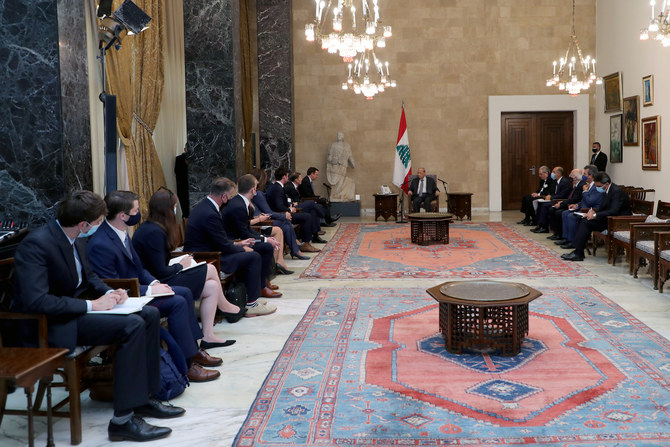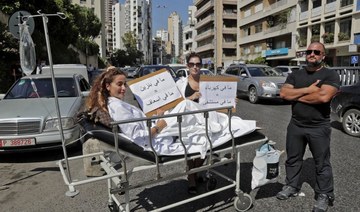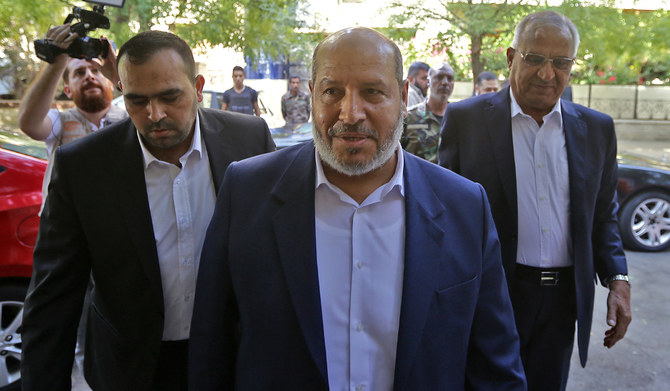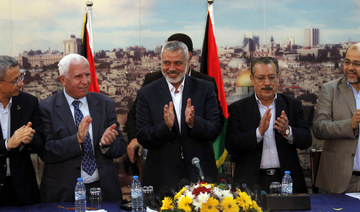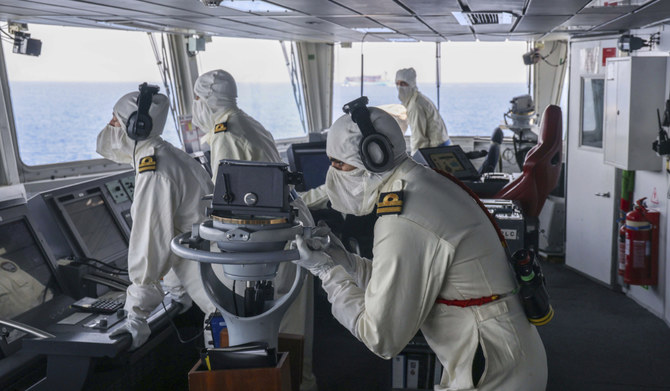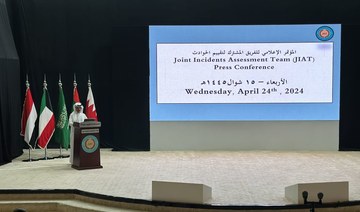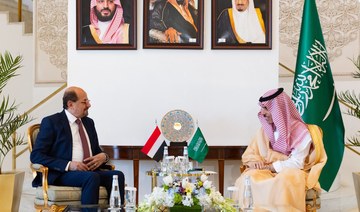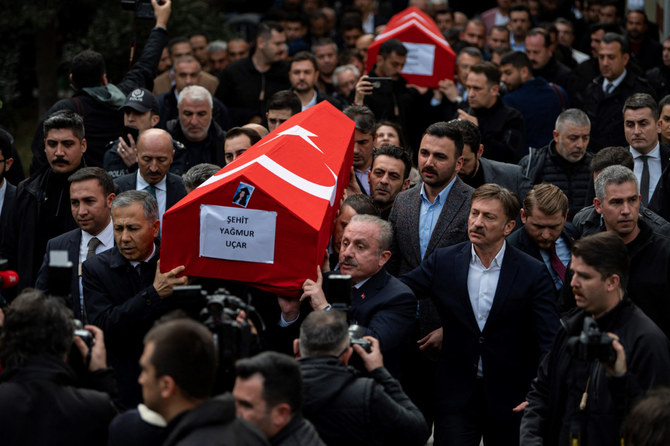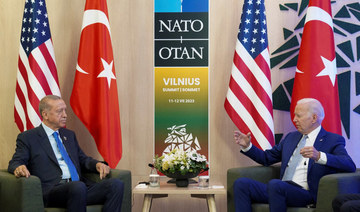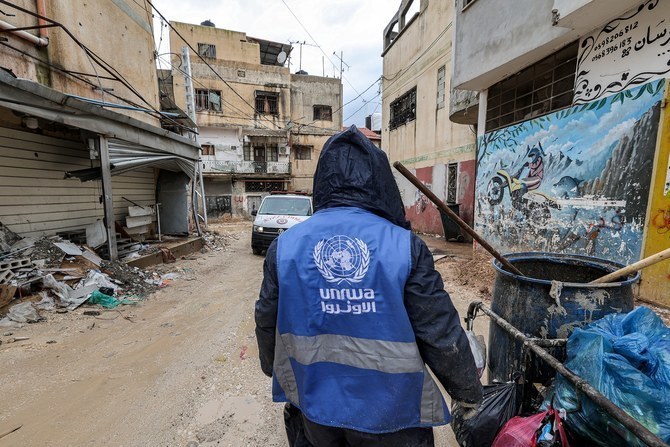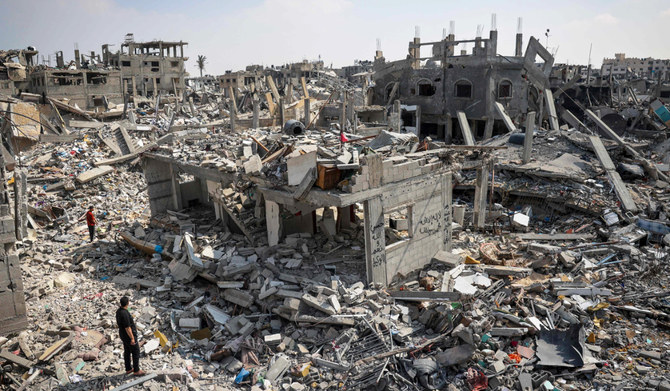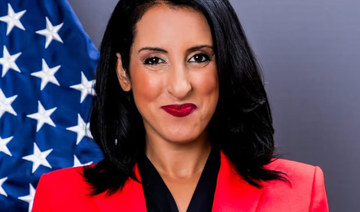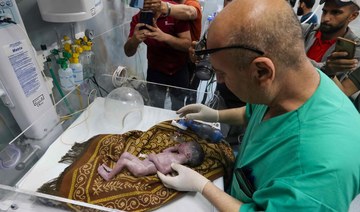BEIRUT: A US congressional delegation led by Sen. Chris Murphy met with Michel Aoun on Wednesday and had some harsh words for Lebanon's president before departing the shattered country under the impression a new government would be formed by the end of the week.
“Hezbollah is a terrorist organization, it is creating destruction in the region and is a cancer that is spreading in Lebanon,” said Murphy, who is the chairman of the US Senate Foreign Relations Subcommittee on Near East, South Asia, Central Asia and Counterterrorism.
Despite Murphy’s disdain for the Iran-backed Hezbollah group, he said the US would not turn its back on the country as it tries to climb out of a financial collapse that began in 2019.
“We will continue to support Lebanon,” he said. “Corruption is a pattern in the Lebanese government, and this is unacceptable. Any member of the government involved in corruption cases will be subject to US sanctions.”
The president’s media office said that the meeting with the US delegation focused on “the situation in Lebanon and the future steps” as Aoun told the Americans that there “is progress in the government formation process.”
During a meeting with a number of journalists at the airport before the US delegation left for Israel, Murphy said the delegation heard from all Lebanese officials their assurance that a new government will be formed at the end of this week.
“The congressional delegation assured the president that Washington will work with the new government,” Murphy said.
Lebanon is grappling with a deep economic crisis that the World Bank has described as potentially one of the most severe crises since the mid-19th century.
The situation has crippled military institutions and other security forces. Lebanon has been without a stable government for more than a year, even though three different figures have been assigned to handle the task of leadership.
More than 70 percent of Lebanon’s population has slipped below the poverty line and the Lebanese pound has collapsed, losing more than 90 percent of its value on the black market.
The international community is also unlikely to aid state institutions if a national government has not been formed.
The fuel shortages that Lebanon has witnessed since the start of the summer have encouraged sales on the black market and prompted disputes outside gas stations.
“There is no need for Lebanon to depend on Iranian fuel as any fuel that is transported through Syria is subject to sanctions,” Murphy said.
“Hezbollah is an organization that will take a portion of the oil money, and this oil will not solve the fuel crisis in Lebanon.”
Tensions from the national fuel shortage developed into violent clashes with weapons and knives in some areas, threatening civil coexistence.
Gasoline and diesel prices have also increased with the gradual lifting of subsidies, which is expected to be fully completed by the end of September. Security raids have unveiled enterprises hoarding millions of tons of subsidized fuel across the country, to be later sold at higher prices.
Energy minister in the caretaker government, Raymond Ghajar, told the public on Wednesday: “The first shipment of Iraqi fuel (30 million tons) will arrive in Lebanon in the second week of September and the second shipment (33 tons of oil) will arrive in the third week of September.”
The shipments are aimed at increasing the supply of power from as little as 30 minutes per day in some areas to more than eight hours.
Lebanon has also inked an agreement with Iraq to buy 1 million tons of fuel to be used in power plants.
Ghajar added: “Lebanon has received no request to import fuel from Iran.”
But the leader of Hezbollah, Sayyed Hassan Nasrallah, said earlier that a shipment of Iranian fuel from a third vessel was being sent to Beirut.
Sources close to PM-designate Najib Mikati told Arab News: “Mikati was reassured by Hezbollah that the Iranian shipment will cause no distress to anyone.”
A meeting was also held between the US delegation and Commander of the Lebanese Armed Forces Gen. Joseph Aoun. It focused on ways to help the army maintain stability in the country.
In a speech delivered in March, Gen. Aoun asked Lebanon’s ruling political class: “Where are we headed? What are you planning to do? We have warned you of the danger of the situation more than once. The Lebanese are hungry and poor — and soldiers, like the rest of the people, are suffering and hungry.”
Gen. Aoun also rejected criticism of the army’s acceptance of foreign aid, and said: “If it was not for that aid, the situation would have been much worse.”
According to a report issued by Washington, the congressional delegation in Lebanon is discussing issues related to “regional security and democracy.”
The group will travel to Israel and the West Bank after their stop in Lebanon.
It includes senators Richard Blumenthal, Jon Ossoff and Chris Van Hollen.
Murphy and Ossoff will later continue on to Tunisia and Greece.
“New leadership and simmering crises dot the landscape of the Mediterranean right now,” the delegation said. “We look forward to speaking directly with key actors in the region, especially the new Israeli government and Palestinian leadership.
“This trip will also give us the chance to discuss the path forward to protect democracy in Tunisia and address the economic and political crisis in Lebanon. The US must be a force for good in the Middle East and North Africa, and we look forward to a productive trip.”



